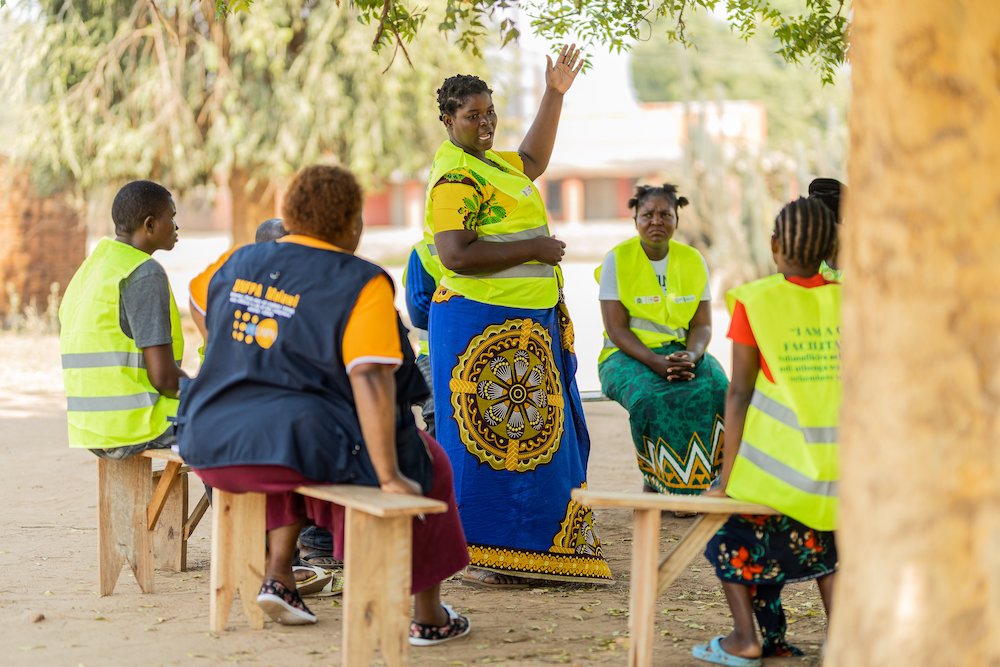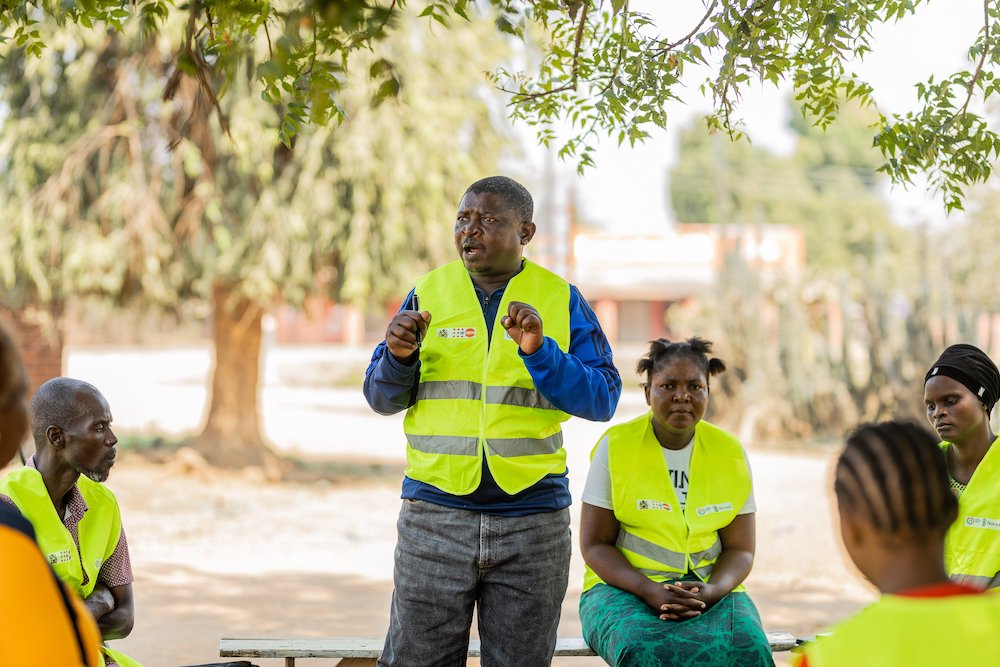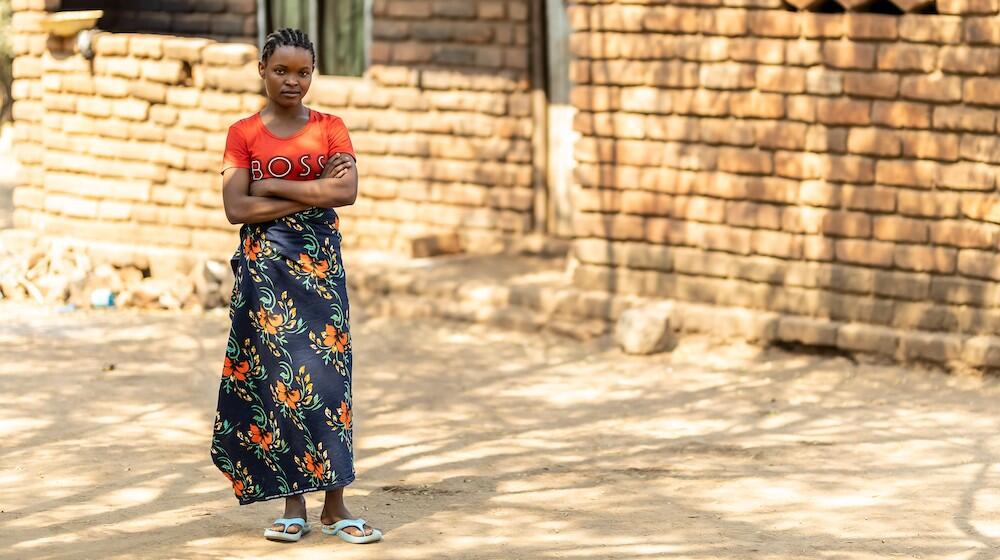CHIKWAWA, Malawi – Fanny Galeta wasn’t sure how to react when her mother told her that her initiation ceremony had been planned. Over the years, Fanny had heard many stories about these ceremonies and she wasn’t sure whether she wanted to participate in one.
No one really tells you the truth about what happens there. Many things are kept secret.
“No one really tells you the truth about what happens there,” said Fanny, 16. “Many things are kept secret. I tried to reach out to my friends who had been there and they just laughed. They told me that I will have to discover [it] on my own.”
But the choice wasn’t hers to make. Fanny’s parents and her community held the practice in high regard and, like every girl her age in the village, she was expected to take part in the ceremony.
Initiation ceremonies – the good and the bad
When the time came, Fanny was accompanied by her mother to a secluded camp deep in a forest near their village. Here, she was welcomed by four elderly women who were known initiators. Fanny would stay in the camp for three weeks.
“The rules were tough,” she said. “We weren’t supposed to go out of the camp or see anyone during our stay. Even those who brought us food were not allowed to talk to us.”
The initiation was a bittersweet experience. Some of the things she learnt were helpful while others, such as the ‘sex education’, almost ruined her future. During these lessons, she was taught how to ‘handle’ a man.
We were told that we had come of age. I decided to try out what we had learnt and found myself in a relationship.
“After we graduated, we were told that we had come of age. To many of us, this meant that we were ready for marriage. I then decided to try out what we had learnt and found myself in a relationship,” she said.
As her new-found love grew, Fanny began to lose interest in school.
“I agreed with my boyfriend to get married,” said Fanny. “But when my mother heard about it, she sought help from the community police. Since I was underage, I decided to leave the area to stay with my grandmother so that they wouldn’t arrest my boyfriend.”
Fanny moved to her grandmother’s house but word had already spread about her relationship. It soon reached the ears of the local chief, who decided to seek her out as a result.

Local leaders rise to the challenge
“Our district is known for harmful traditional practices that have derailed the future of many girls,” said Fraiton Pintu, the Group Village Head. “We need to change this. If we fail, we will leave behind a legacy that will be frowned upon by generations to come.”
We need to change harmful traditional practices that derail the future of girls. If we fail, we will leave behind a legacy that will be frowned upon for generations to come.
Group Village Head Pintu is a passionate advocate for girls’ education and also chairperson of the Mlirima Development Network, a community group that fights gender-based violence and child marriage. Together with her team, they engaged Fanny in discussion and counselled her.
“She listened to us and agreed to go back to school,” Group Village Head Pintu said. “We also made sure that the boy keeps away from her by warning him that we will report [him] to the police if he continued seeing Fanny.”
To help them discharge their duties better, leaders from Mlirima Development Network were trained in gender and rights by UNFPA under the Safeguard Young People programme, funded by the Swiss Agency for Development and Cooperation. The training sought to build the capacity of grassroot organizations to raise awareness of the negative impact of child marriage, reduce the incidence of gender-based violence, foster gender equality and empower survivors.
Armed with knowledge and skills, Mlirima Development Network has to date withdrawn 30 girls from early marriage and sent them back to school.
One of them was Fanny. She sat the exams for her primary school certificate and passed.
“I am glad that I listened to their advice,” she said. “Now, I am the pride of the family as I am the only girl to go to secondary school.”

New bylaw created to protect adolescent girls
Fanny’s story inspired Group Village Head Pintu to take a closer look at traditional practices in his community. He called a meeting with his subordinate chiefs and put in place bylaws that prohibit initiation ceremonies from taking place during the school term.
Another key decision he made at the meeting was to change the initiators, due to a significant generation gap he noted between the initiators and the girls.
We can’t do away with initiation ceremonies completely as they are part of our culture, but we can reform them from within.
“Times have changed, and yet we still had old women teaching young girls obsolete traditions,” he said. “During the meeting, we chose young women who were progressive to take charge of the initiation ceremonies. We can’t do away with them completely as they are part of our culture, but we can reform them from within.”
One of the new initiators, 35-year-old Hanna Mkamwa, is happy to be entrusted with the responsibility as she intends to share with them information that will better prepare them for the future.
“I have been working with girls for some time as a mothers’ group member, and I very much know the problems they go through when they are growing up,” Hannah told UNFPA. “Now that I am an initiator, I will use my knowledge to shape the girls into future leaders and not child brides, as was happening.”



